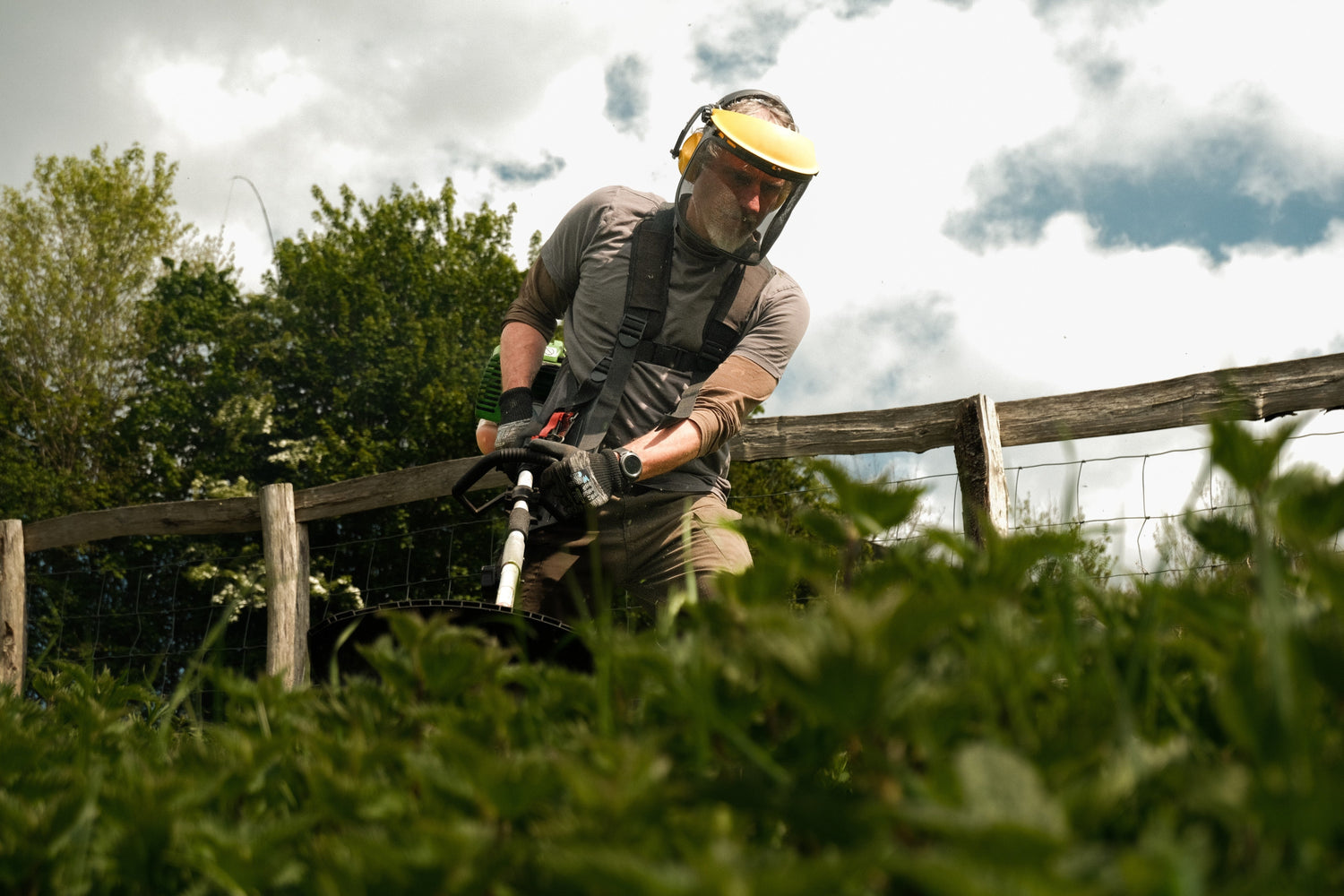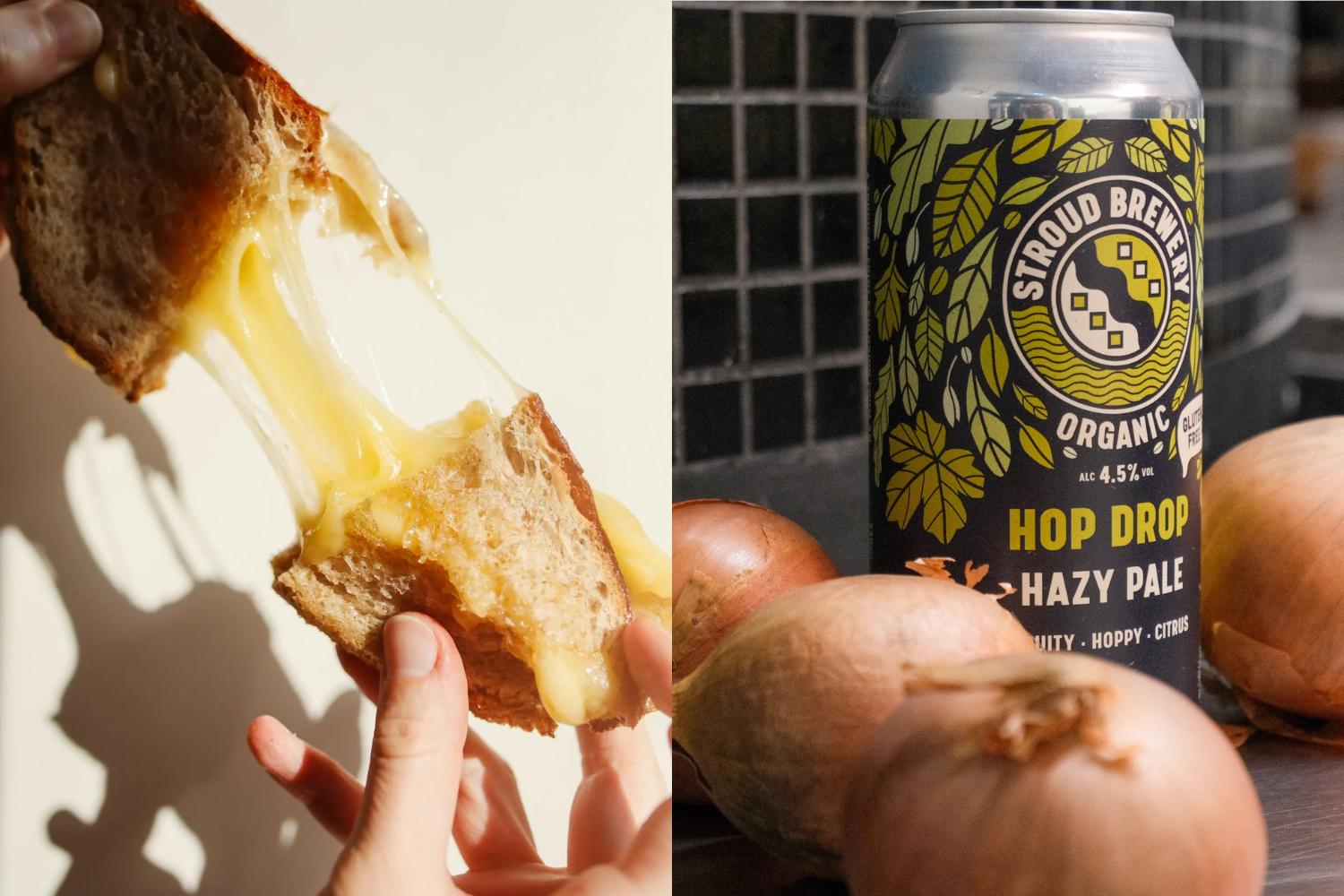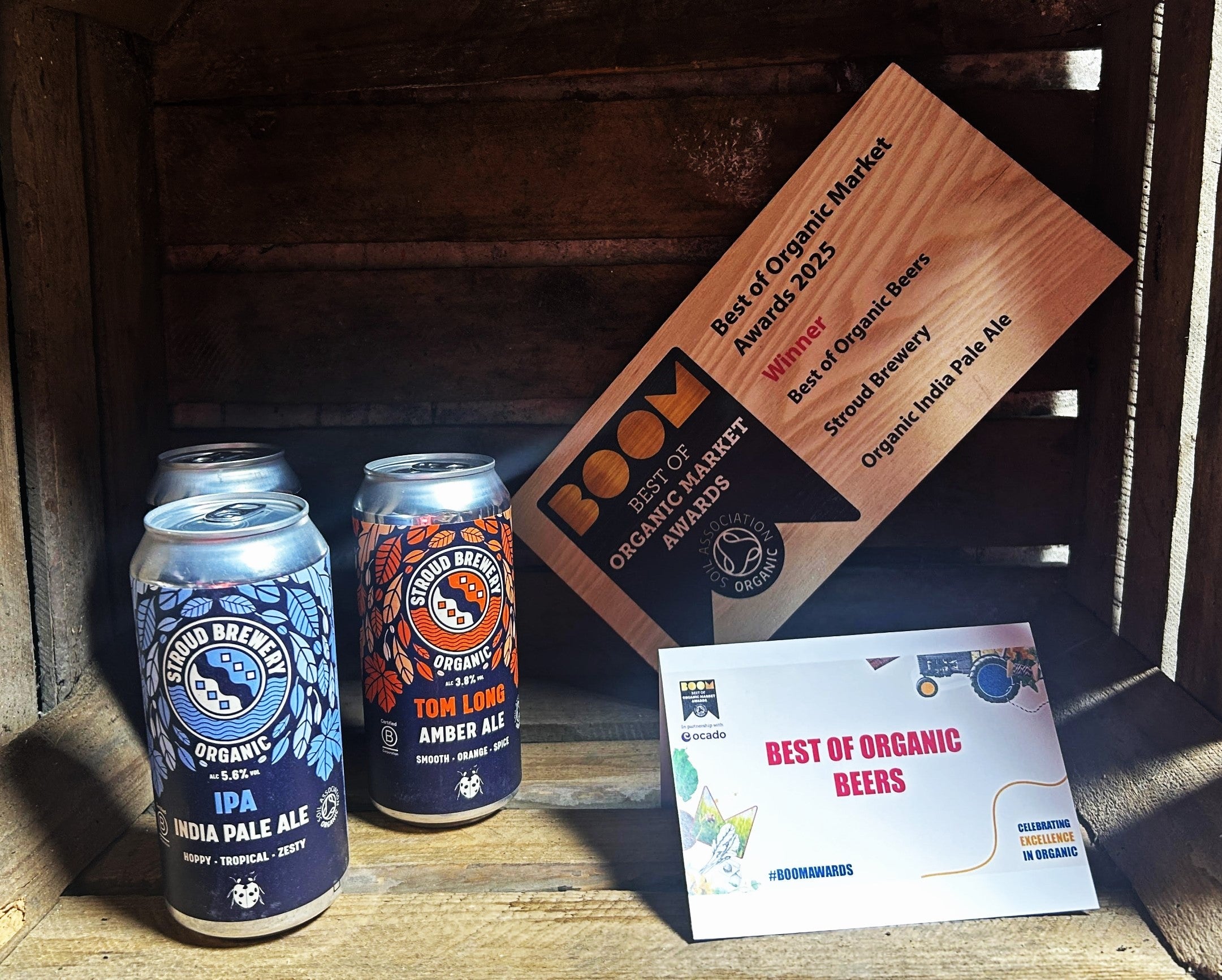As spring bursts out all over with bird song, tree blossom, and flowers carpeting
roadside verges, hedgerows and woodlands, a team from Stroud Brewery embarked
on some wild foraging to gather an unusual harvest to add to the brewery’s beer
making: nettles.
In times past, before hops were introduced into Britain in approx. 1400AD, brewers and
brewsters used all sorts of herbs and botanicals to brew ales. A mix, called gruit, made of
bitter herbs, flowers or roots was added to give flavour. Sage, dandelion, burdock, sweet
gale, mugwort, and yarrow were some of the plants often used in gruit, as were nettles.
And it was the nettles that Stroud Brewery’s team of Greg Pilley, Arthur Weir and Sam Oliver headed out to forage as the special ingredient for the brewery’s harbinger of spring, a pale ale called Stinger.
The brewery doesn’t need to use gruit any more in its beer-making but 40kg of fresh, young nettles were harvested to add a special flavour to the ale. They’ll be added with the hops towards the end of the boiling stage, and then sieved out at the end of the process and given to local allotment holders to use as fertiliser.
“The nettles add a fresh vegetal taste to the beer along with a zing originating from the citric acid that’s contained in the stinging part of the leaf.” said Greg.
“But there’s no problem with drinking it – the sting doesn’t get transferred to the beer! The nettles break down when they’re boiled and the sting is neutralised, so the flavour remains: more zing, no sting.”
The nettles were harvested from Slad Farm in Stroud as it’s registered organic meaning the
nettles fit in with the brewery’s 100% organic commitment.
Greg, Arthur and Sam found their activities attracted an audience – of sheep! It seemed they were particularly interested in licking the traces of malted barley from the inside of the plastic bags!
Stinger pale ale is produced in collaboration with Hugh Fearnley-Whittingstall’s organic River Cottage. It’ll be available from June in the brewery’s taproom and mail order via the brewery’s website. In addition to the spring brew, there’ll be enough nettles for two more brews during the year.




